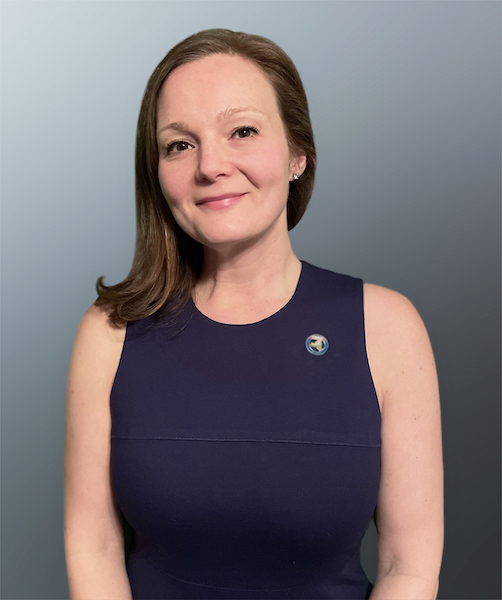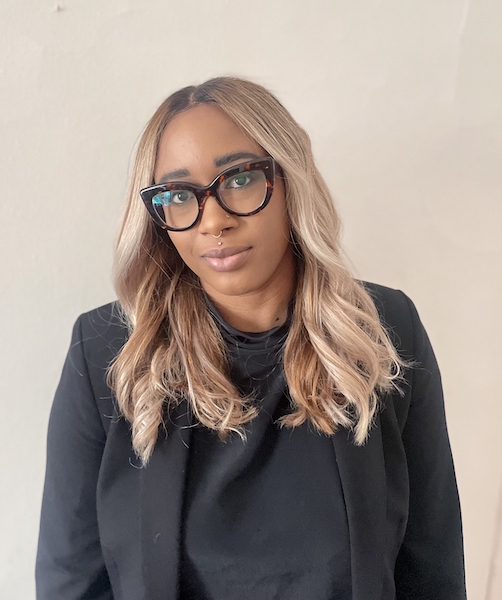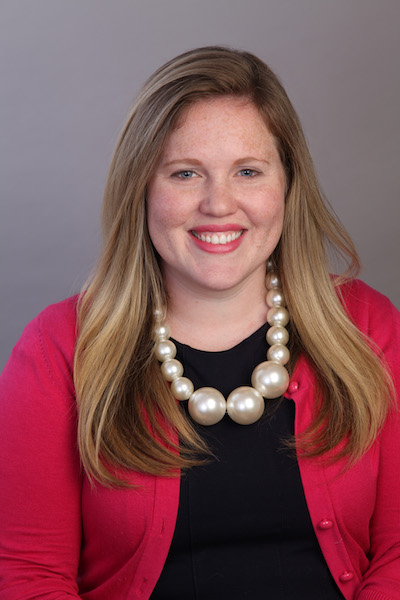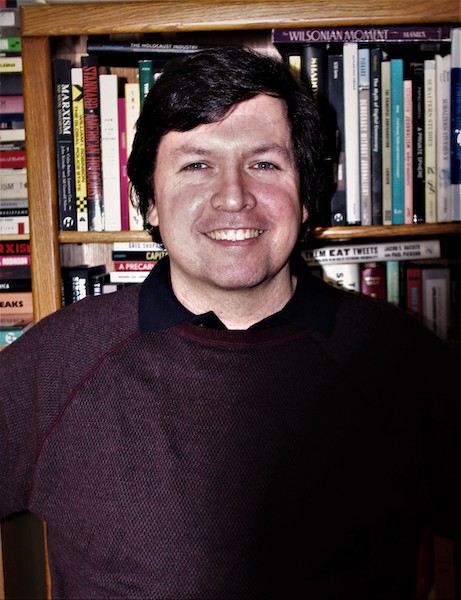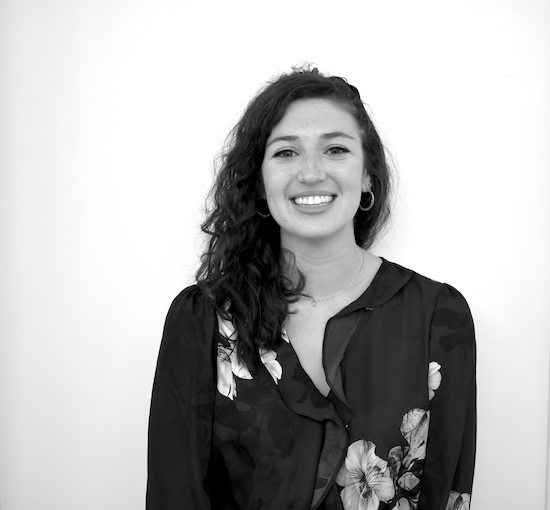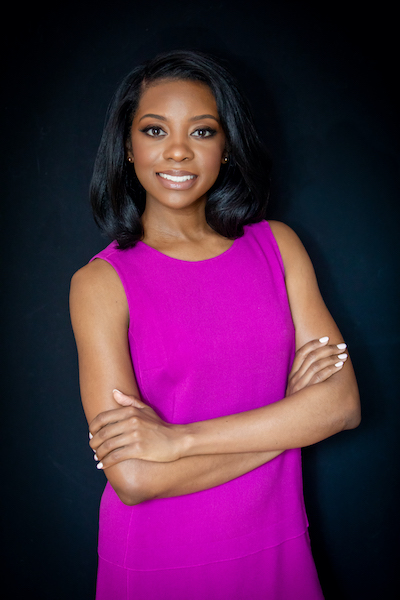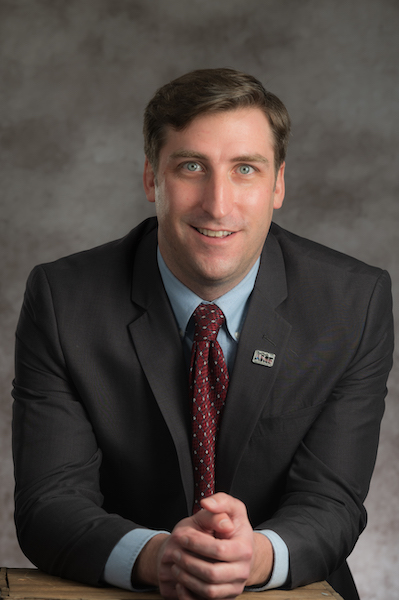In New York, organized labor has a lot of leverage. The chiefs of the state’s largest labor unions play an outsized role in shaping policy in New York City and in Albany. But while the top officeholders heading up these influential unions get plenty of press and applause, they rely heavily on hardworking deputies who assist in protecting their rank-and-file members, passing worker-friendly legislation and driving political debate. Meanwhile, other younger New Yorkers are also helping to advance the cause of the labor movement, including officials within state and local government as well as activists agitating for change from the outside.
City & State’s Labor 40 Under 40 highlights an impressive array of rising stars in labor – all under the age of 40 – who you might not know, but should. This list features individuals who have been on the front lines of the battle against COVID-19, who are training New Yorkers to adapt to an evolving economy, who are advocating for women and people of color. These young leaders are taking on such timely causes as immigrant rights, diversity in workplace and criminal justice reform. And a number of them are running for elected office, as a way to have an even greater impact on the lives of working New Yorkers.
Thank you to our sponsors
[INSERT_SPONSORS_LOGO]
Erik Antokal
Assistant Vice President, Programs, Nontraditional Employment for Women
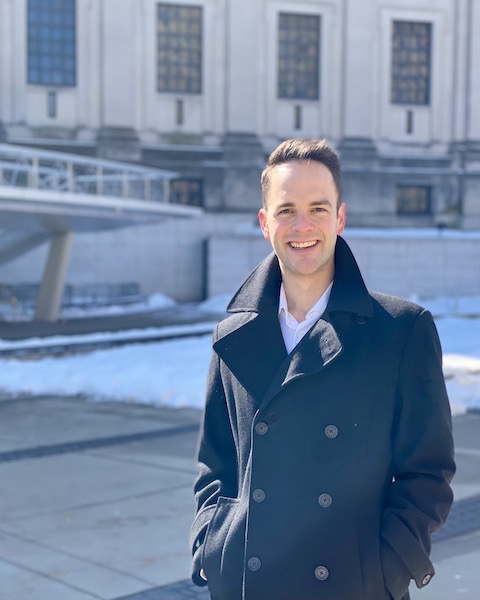
It’s no secret that construction work has long been a male-dominated industry. Erik Antokal is striving to change that.
“You have 50% of the population that has essentially been historically excluded from that incredible opportunity – what an untapped resource,” Antokal says.
After graduating from Tufts University in 2012, Antokal completed a fellowship with the Coro New York Leadership Center, where he was able to work with the United Federation of Teachers and 32BJ SEIU, the politically powerful property service workers union. Prior to joining Nontraditional Employment for Women, Antokal also worked for the New York City Department of Small Business Services, where he helped coordinate the city’s business improvement districts.
Since joining the Nontraditional Employment for Women workforce development initiative almost five years ago, Antokal has connected women and nonbinary individuals who graduate from the organization’s training program with the developers and subcontractors who are hiring construction workers. Of the women who go through NEW’s program, Antokal says about 85% are women of color and 82% are low-income individuals.
Looking to the future, Antokal says he hopes to promote equity in the city’s green infrastructure projects. He also leads the organization’s Signature Projects Program, which he describes as “essentially trying to cheat the market” by working with developers and unions to set diversity goals, thereby creating demand for the organization’s trainees.
“We’re here to help companies do what the unions have already stepped up to do in setting their own diversity goals on their projects,” Antokal says.
Anthony Beckford
President and Co-Founder, Black Lives Matter Brooklyn
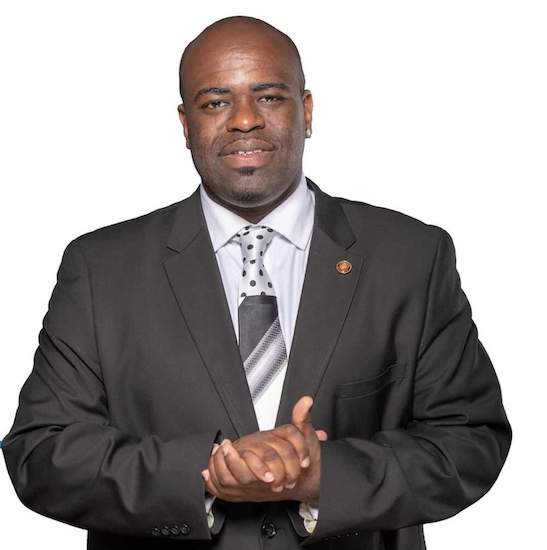
As a former United Federation of Teachers member and a member of the Freelancers Union, Anthony Beckford has taken his experiences in organized labor with him into the political sphere.
“I’m able to bring what I know from being a union member, what I know from being a laborer, what I know from being an advocate, from being a father, being a parent, being a dedicated community member into the political arena,” Beckford says. “Labor rights is civil rights, which is human rights, which is all social justice,” he adds, referencing Martin Luther King Jr.
Perhaps best known for his role as president and co-founder of Black Lives Matter Brooklyn, Beckford’s most recent endeavor is his campaign to represent the borough’s 45th District, which includes the Brooklyn neighborhoods of Flatbush, East Flatbush and Midwood, on the New York City Council. Beckford also heads Brooklyn’s Copwatch Patrol Unit and is an elected member of the Kings County Democratic County Committee.
In his bid to represent the 45th City Council District, Beckford says he will advocate for the reallocation of $2.5 billion in New York City Police Department funding, a moratorium on rent increases for the next 10 to 15 years and a 5% equity tax to fund the New York City Housing Authority. He also supports a free City University of New York.
In the past, Beckford has worked with SoSincere Entertainment as a music mentor and independent entertainment booking agent, as well as with RB Consulting as a community advocate, empowering veterans to assert their rights.
During the course of the pandemic, Beckford has forged partnerships to distribute over 15,000 masks, 160,000 free meals, and 900 bottles of hand sanitizer in his Brooklyn community.
Angel Benitez
Second Vice President, Local 420, DC 37, AFSCME
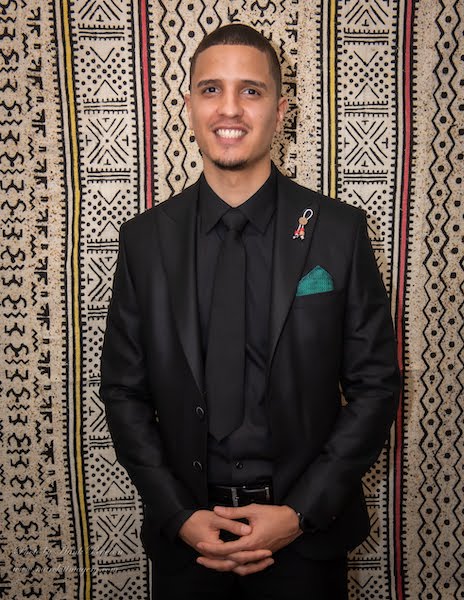
Angel Benitez first became involved in his labor union after being written up by a supervisor at Woodhull Hospital in 2015. Local 420, the Municipal Hospital Employees Union, helped him challenge the write-up and inspired Benitez to become a more active member of the union, where he eventually took on even more responsibility as a shop steward.
In 2016, Benitez says, he was able to work together with his co-workers to successfully advocate for behavioral health associates working at Woodhull Hospital to obtain the maximum salary possible.
Benitez has also focused on advocating for better safety protocols to reduce the number of assaults on hospital staff by patients. Benitez is no stranger to on-the-job trauma: He says he has been hurt while working at the hospital, suffering a torn rotator cuff and an injured back.
After being elected to his role as second vice president of Local 420 early last year, Benitez now splits his time between working as a behavioral health associate at Harlem Hospital and acting to engage, empower and educate other members within the union. In his leadership role, Benitez fields calls from members asking about benefits and family medical leave, and he oversees about 100 shop stewards.
“My goal is to inspire those around me, motivate them, make them more engaged so that they can have a better life, more benefits,” says Benitez. “There’s more to life than just going and clocking in for a paycheck.”
Grace Bogdanove
Vice President, Western New York Nursing Home Division, 1199SEIU
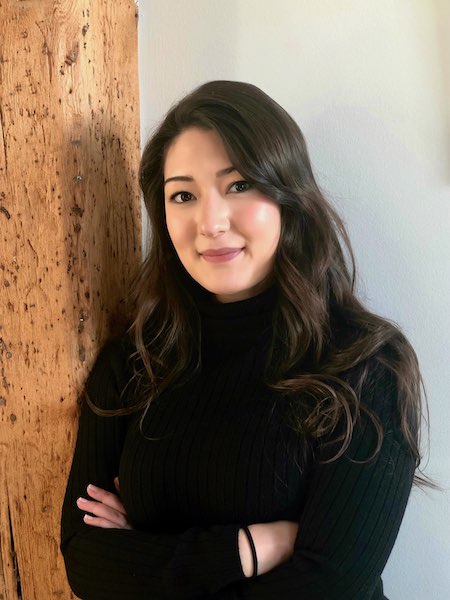
Grace Bogdanove’s first experience with organized labor came during an internship with the Western New York Area Labor Federation AFL-CIO, while she was an undergraduate student at Cornell University’s School of Industrial and Labor Relations.
“I came to believe, in that one summer really, that the labor movement is the single most powerful movement in the fight for social and economic justice today,” Bogdanove says. The AFL-CIO internship also introduced Bogdanove to working with health care unions – and the experience made an impact.
“I think, all along, my heart and my passion was with health care,” says Bogdanove, who took a position with the Pennsylvania State Education Association after graduating from Cornell. Eventually, she found her way back to 1199SEIU as an administrative organizer representing six nursing home facilities.
In this role, Bogdanove worked with a long-term care facility in Utica to motivate members who were too frustrated and worn out by changes in ownership to put up a fight when the new owners instituted a 4% wage cut, she recalls. Over time, she says, she was able to rally the facility’s members, leading them to win a contract where she says they did not give up a single thing – “all they got were gains.”
Nine months ago, Bogdanove became vice president of the union’s northern New York region, and in the next couple of months, she will transition into a new role as vice president of the western region.
Derick Bowers
Director, Social Enterprise NYC, Center for Employment Opportunities
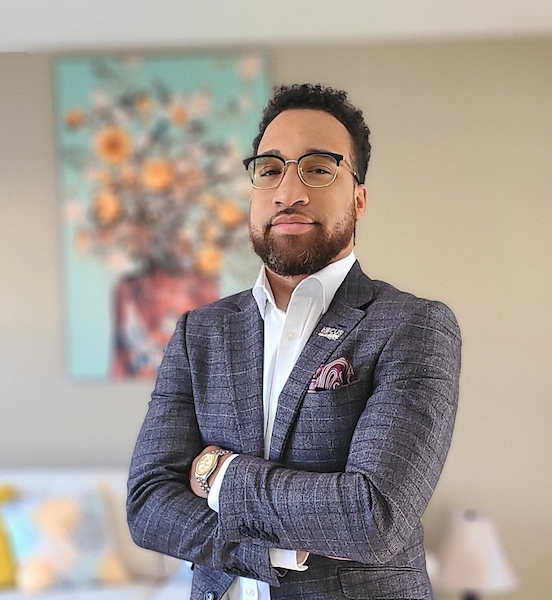
Derick Bowers says he learned early in his career – while working as a public charter school teacher in Washington, D.C. – that a lot of the barriers children face have to do with their home environment. Many of the students he taught had family members caught in cycles of incarceration.
In his current role as director of social enterprise at the Center for Employment Opportunities, Bowers works with formerly incarcerated individuals who are looking for work. He oversees 30 or more work sites through partnerships with New York City and state agencies such as the New York City Housing Authority and the City University of New York. Throughout the pandemic, the supplemental sanitation and maintenance services provided by the over 2,000 individuals enrolled in the organization’s programs each year have become even more essential.
“Not only are they doing amazing work and getting paid that day, but they’re also providing a service to people who need it from their communities,” Bowers says.
Prior to joining CEO, Bowers worked at The Doe Fund for six years, serving in several positions – including a role with the organization’s culinary training program, where he “fell in love with the idea of social enterprise,” he says.
“That led me to think about what social enterprise meant, and how I can create business opportunities for an organization with the purpose of not making money for the organization, but really injecting profits into the pockets of individuals we serve,” Bowers says.
Dominick Cassanelli Jr.
Vice President, Teamsters Local 456
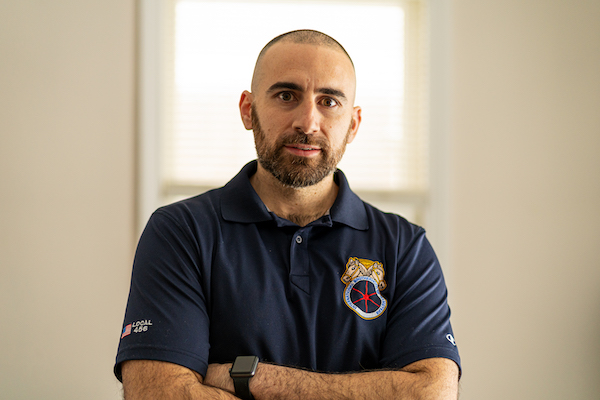
Originally from Yonkers, Dominick Cassanelli Jr. has been a Teamster his entire professional life. After graduating from Saunders Trades and Technical High School in his hometown, Cassanelli began working in the construction industry at a roofing supply yard and has now been with his union for the past 20 years.
“I was legitimately born into this union – and that’s where I plan to die, to be honest with you,” says the fourth-generation Teamster.
In 2012, after working as a shop steward, Cassanelli was asked to take on a business agent role, working at the Local 456 headquarters in Elmsford. In 2016, after organizing with other business agents and board members to form the Solidarity for Strength slate, Cassanelli was elected as vice president.
As a Teamster, Cassanelli has worked with members to challenge a South Bronx construction company that was unwilling to pay workers the prevailing wage in Westchester County, as well as on other initiatives like advocating for political funding and organizing picket lines.
Throughout the pandemic, Cassanelli says that he has worked to ensure that members aren’t taken advantage of if they have to take time off work for being sick, while keeping up to date with the various state mandates regarding coronavirus regulations.
“My professional goal is, honestly, being able to change certain laws in this state and in this country that are against the working class and are against the Teamsters,” he says. “If it takes me running for office somewhere down the line, then I’m going to do that, too.”
Sue Castle
Legislative and Political Action Coordinator, CSEA
Sue Castle grew up in a union home: Her mother worked as a school nurse and her father as a printer.
“My mom always instilled in us the value of having a union and what it meant to have a collective voice and the power that that brought to working families,” she remembers.
Prior to joining the Civil Service Employees Association, Castle’s first experience working with a labor union that was tied to political advocacy was through a 2004 internship with United Steelworkers.
“It was really challenging,” Castle says of the internship, which focused on motivating rural steelworkers to vote for Democratic presidential candidate John Kerry. “But I also loved it because it was a way to connect with union members on a different level and it kind of started my interest in politics and unionism.”
Castle also worked for the Professional Staff Congress for several years, representing City University of New York professors.
At CSEA, Castle has prioritized fighting for increased federal funding during the coronavirus pandemic, lobbying elected officials on issues important to members, and supporting political candidates backed by the union.
Although the pandemic has posed challenges for outreach efforts, Castle says CSEA has adapted during the past year, using social media and technology to sway voters and reach out to members.
“We had to get creative because, as a labor movement, one of our biggest tools is being on the ground and asking for votes at people’s doors,” she says.
Manuel Castro
Executive Director, NICE
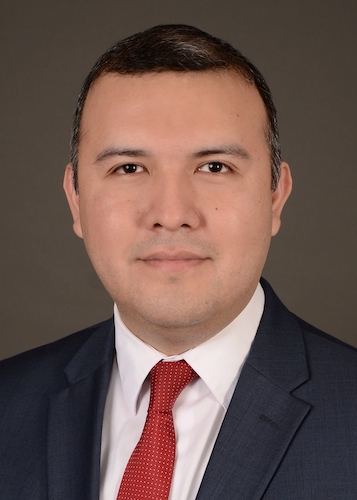
After moving to the United States from Mexico when he was 5 years old, Manuel Castro grew up in Sunset Park, Brooklyn, as an undocumented immigrant. Now the executive director of New Immigrant Community Empowerment, Castro works to connect new immigrants to employers throughout the city, advocating for fair wages and better opportunities.
Although Castro joined NICE in his current role in 2015, he says his first experience with the organization was as a 19-year-old intern.
“When I came back to the organization, it was with the intention of really building an organization that could have a lot of impact,” Castro says.
The organization has grown tremendously since then, he says. It now has over 12,000 members and three locations throughout the city, including a worker center in Jackson Heights, which remained open during the pandemic.
“Our model is organizing a labor force that tends to be unorganized, that tends to be taken advantage of because of that,” says Castro.
With the start of the Biden administration, Castro says he hopes for immigration reform that can help the organization’s members “live without fear of getting deported” or taken advantage of by employers.
Early in his career, Castro worked at New York Immigration Coalition, leading immigration reform campaigns like the New York State DREAM Act and the NYC ID card campaign.
He was recently awarded the David Prize, an award given to a select group of New Yorkers working to improve the city.
Olando Marlon Charles
CHOW Coordinator, Restaurant Opportunities Center of New York
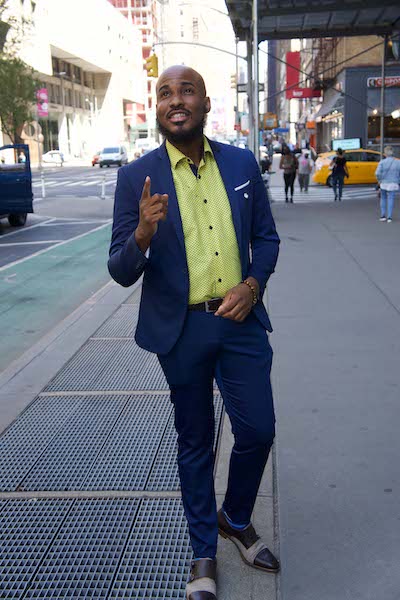
Once a student of the program he now oversees, Olando Charles works as the CHOW program coordinator at the Restaurant Opportunities Center – providing free, in-depth training for jobs like waiting tables, bartending or managing a restaurant.
“I always wanted to make a difference in the lives of people, especially for persons who are immigrants, persons who are LGBT, persons who are minorities,” says Charles, who immigrated to New York from the Caribbean.
In order to adapt during the pandemic, Charles says he developed an online curriculum for the CHOW program and partnered with agencies like ThriveNYC, the New York City Department of Consumer and Worker Protection (formerly the Department of Consumer Affairs), and the New York City Department of Small Business Services to provide the program’s students with mental health resources and help them learn their rights as workers. Over the past year, Charles says, the program has graduated close to 135 students.
Prior to joining ROC, Charles was an organizer and case manager for the Queer Detainee Empowerment Project, helping LGBTQ immigrants.
“I really want the world to be a safer place for persons, especially persons who have experienced discrimination or inequality,” he says.
Aside from his work at ROC, Charles serves as a board member for the O’Brien Dennis Initiative for male survivors of sexual violence, the Queer Detainee Empowerment Project and Men of Faith.
Charles is pursuing both his bachelor’s degree in labor and urban studies at the City University of New York School of Labor and Urban Studies and a certificate program in theology at the New York Theological Seminary.
Nuzhat J. Chowdhury
Legislative Counsel, New York City Council
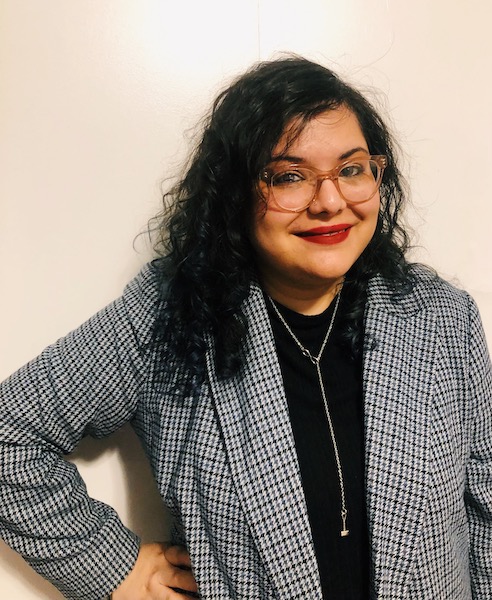
Over the past year, as legislative counsel to the New York City Council’s committees on Aging and on Civil Service and Labor, Nuzhat Chowdhury says she has been focusing on how the city can better protect its workers during the pandemic.
“I think that the pandemic has really highlighted the disparities that we knew existed already in the workforce,” she says.
After graduating from Columbia Law School, Chowdhury focused on appellate work on the public defender side for a year through a fellowship before transitioning into city government. As a social justice fellow with the city, she was placed with the City Council, originally working with the Committee on Civil Rights.
Once she became a permanent hire, Chowdhury began working with various committees before landing with the committees on Aging and Veterans, and eventually with the Committee on Civil Service and Labor.
Recently, Chowdhury contributed to the city’s passage of just cause legislation for restaurant workers, as well as an age discrimination package, which set up studies to research the issue in the city.
In January, Chowdhury oversaw the city’s passage of two pieces of legislation related directly to workplace safety, creating specific guidelines and what is essentially an external review board.
“The people who are putting themselves on the front line – the people who are more vulnerable to even contracting the virus – they disproportionately tend to be from these communities of color,” says Chowdhury. “That’s something the city needs to address.”
Kelli Coughlin
Deputy Director of Labor Relations, Metro-North Railroad
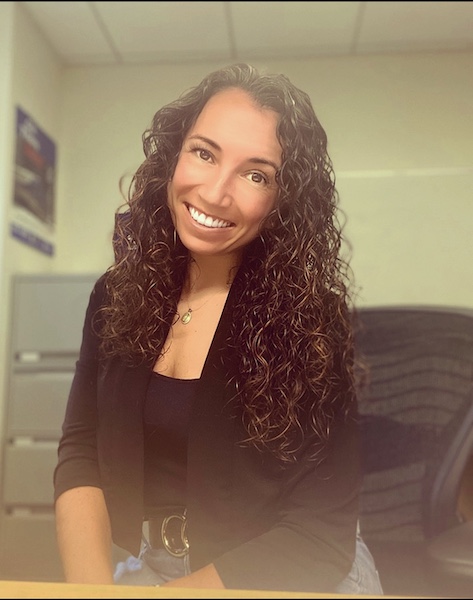
Kelli Coughlin was a competitive dancer and gymnast as a Syracuse University undergraduate. Later, as a New York Law School student, she took a class in sports law because it seemed like a natural fit. There, she was introduced to collective bargaining, negotiation and labor relations.
Ever since, Coughlin has been devoted to labor law. She now works with Metro-North, which she rode from Poughkeepsie to Manhattan during her law school days.
“I would look out the window as I’m on the train and I would, you know, envision what it was like for the employees at Metro-North and labor relations at the railroad,” Coughlin recalls.
At Metro-North, Coughlin worked her way up from an intern to her current role as deputy director of labor relations – which involves interpreting and administering labor contracts for more than 15 Metro-North unions. She prides herself on being able to directly understand the represented employees at Metro-North.
“Most memorable to me is really going out into what we call the field,” Coughlin says. “I really want to experience what it is that our employees do every day so that I truly understand their perspective.”
As for her future goals, Coughlin says she hopes to continue to engage with collective bargaining in a way that is mutually beneficial to both the Metropolitan Transportation Authority and union employees, and to continue to grow her career with Metro-North.
Jacob Crawford
Secretary and Treasurer, Professional Staff Association
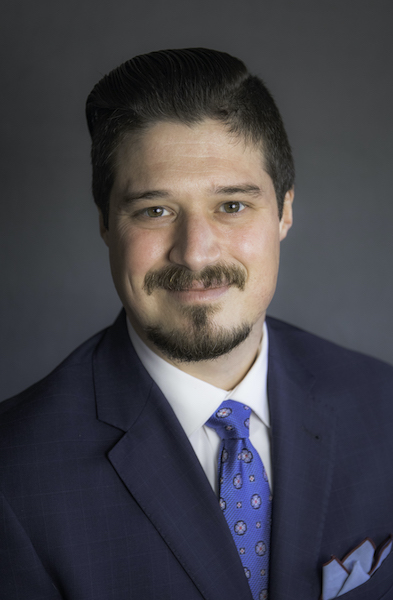
Jacob Crawford comes from a true labor family – his grandfather is a 65-year member of the UA and Crawford’s father recently retired as president of the IBEW Local 43.
“Labor’s always run through my family,” says Crawford. “The opportunity to work at (New York State United Teachers) was an amazing opportunity and the ability to serve my fellow co-workers by being one of their union representatives is an amazing opportunity to me.”
In addition to union work, Crawford is chair for the Albany County Democratic Committee – the youngest elected chair in history, he says. “My day job is working in labor and my hobby is the Democratic Party at this point,” Crawford says. “I’ve always thought that the Democratic Party goes hand in hand in terms of the values that labor believes in and the values that the Democratic Party will use.”
During the pandemic, Crawford has updated union members on changing policy and finances due to COVID-19. His regular role at NYSUT focuses on helping higher education faculty with their contracts, providing career resources and offering professional development at reduced rates.
“Being able to work with and serve our members in NYSUT and then also being able to serve my colleagues that work for NYSUT is in itself just absolutely rewarding every day,” says Crawford, who lives in Guilderland with his wife, Kellen, and their three daughters.
Michelle Crentsil
Political Director, NYSNA
When Michelle Crentsil started her job with New York State Nurses Association, a mid-sized nursing union, it was March 24, 2020 – just days after a stay-at-home order had been implemented in New York due to the highest surge of COVID-19 cases in the country. Crentsil overcame this challenge, however, and was able to organize during the pandemic.
“It was really important for my development in this role of being able to understand how people view nurses as a profession, then being able to tap into that and channel that into our advocacy and organizing,” she says.
During that same time, statewide elections were ramping up. “One of the first things I was going to do was risky,” says Crentsil: endorsing Jamaal Bowman in the Democratic primary for the state’s 16th Congressional District against longtime incumbent Eliot Engel. “We might be the only one (union),” Crentsil told her colleagues. “Are you prepared for us to be the only ones?”
Through many conversations, Crentsil concluded that the members ardently supported the bold move, and she says she is proud of the decision.
Crentsil says she hopes to increase diversity within the labor field, a goal she thinks has been aided by the Black Lives Matter movement.
“I’m a young Black woman in this role, and I think that’s important,” Crentsil says. “I want to be able to work with other talented Black people in leadership roles in the labor movement and outside of the labor movement.”
Karla Mayenbeer Cruz
Assistant Director of Legislation and Policy, Greater New York LECET
Karla Cruz never imagined she’d be working in the labor industry, but after extensive networking, she got the opportunity to work for the New York City District Council of Carpenters.
“I didn’t know what I was getting myself into,” says Cruz. “I was right out of college; I really needed a job. I didn’t even know what a union was. When they told me that I was getting the salary I was getting back then, with the benefits and all, I didn’t even believe it.”
Since then, Cruz has been at the forefront of efforts to revamp construction safety laws and improve the wages of workers.
“My job has always been to make sure that we are continuing to fight for working people, specifically construction workers in New York City,” she says. “Making sure that they have the dignity they deserve. We can raise wages, not just for our members, but to make sure that we’re also taking care of and helping to advance more rights for undocumented workers and anybody that works in the field in the nonunion sector.”
Cruz works to make sure construction workers are viewed as part of the makeup of New York City and that they are represented accordingly. When asked about her goals for the future, she says she is devoted to achieving economic justice for those unseen and unheard.
“Every day is a fight in the labor movement – and I’m willing, able and excited to see how this all unfolds,” she says.
Erin Darcy
Director of Government Affairs, CWE
Erin Darcy sees the COVID-19 pandemic as a turning point in the labor movement.
“The future of work has changed drastically in the past year,” she says. “For a lot of people, particularly women, women of color, the pandemic has done monumental damage to their ability to find a job. But at the same time, we’ve seen everything go online. We’re seeing digital organizing that we’ve never seen before.”
The daughter of a machinist union member, Darcy grew up in a union household. She continued in those footsteps, working at the same manufacturing facility in the summers in college. In her sophomore year at the University at Albany, Darcy got a runner job with a lobbying firm that took her around the Capitol. “It really entrenched me in the state work and the pace of everything,” she recalls.
Darcy has worked as a legislative representative for the United Federation of Teachers, a City Hall staffer, a public school educator, and a field organizer for several national, state and city political campaigns before ending up at the Consortium for Worker Education. Although she considered getting a Ph.D. after receiving a master’s degree in English at Brooklyn College, Darcy was pulled toward organizing.
“I don’t know if it’s that union, political gene,” she says, “but I just kept coming back to this work. It’s really exciting. Organizing is the pillar of any sort of government affairs work. It’s really important to be able to organize. For me, it’s such a foundation of everything I do.”
Stuart Davis
Vice Chair, Professional Staff Congress Chapter at CUNY Baruch College
Stuart Davis has been studying communications, with an emphasis on digital activism, for most of his professional career. Prior to becoming an assistant professor of communication studies at City University of New York’s Baruch College, Davis conducted research on community organizers in Brazil who were fighting against police violence. His analysis of activism led him to become an organizer at CUNY.
“The kind of connections I see between (CUNY bargaining) and the work I did in Brazil is if you want to get something changed, the best way – maybe not the most time-effective way – is to get significant buy-in and come up with a good kind of organizing strategy around it, which overlaps with my interest in union stuff,” Davis says.
At Baruch, Davis helps bargain on behalf of faculty and organizes the staff. When he first started working at CUNY, Davis says, the university was going to have the CIA build a program on campus without previously briefing any faculty members who might have raised concerns, particularly those in the international programs. Despite not yet knowing anyone at his new workplace, Davis reached out to his new colleagues and eventually gained enough support that the university agreed to sit down with the faculty senate and stop advertising the program.
Davis now wants to strengthen the union and protect its members. “Part of that involves having more part-timers in leadership and more full-timers like me realize that really, this (organizing) is a part of our life,” Davis says.
Eric Dinowitz
Member, UFT
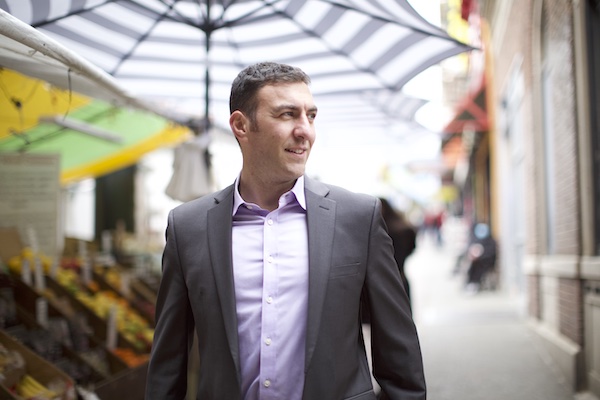
When Eric Dinowitz graduated from college and returned to the Bronx, he embarked on a mission to serve high school students with special needs.
“Right away, I saw the needs of the vast majority of my students extend far beyond the academics I was providing for them,” Dinowitz says. “I have kids who are struggling with homelessness. I would see kids sneak extra sandwiches into their backpack, bring home extra milks as if they were doing something wrong – which they weren’t.” He also served for a time as a United Federation of Teachers chapter leader and remains a member of the city’s teachers union.
The work has been rewarding, Dinowitz says, citing two students who became EMTs. “It was such a proud moment – two of my students are doing something where they’re helping other people, where they’re taking care of themselves and their families,” he says.
Dinowitz, whose father is a state lawmaker, hopes to serve a larger constituency as he seeks a seat on the New York City Council. “There are a lot of ways in which our system does not provide for the people who need the most support and many ways in which our community here in the Northwest Bronx very often feel voiceless, as though we are not being heard,” Dinowitz says. “And in my role, whether it's as a teacher, a chapter leader, a district leader, I have sought to make sure that people have a voice, that their voice is heard and that they have an advocate, a strong advocate.”
Jennie Encalada-Malinowski
Legislative and Strategic Partnerships Coordinator, Laborers’ Local 1010 LECET
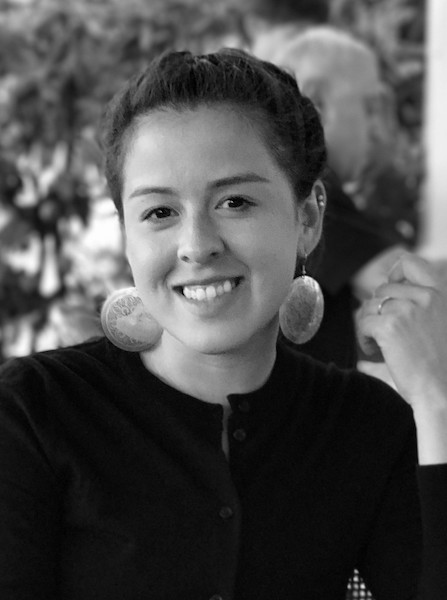
Jennie Encalada-Malinowski grew up in Massapequa, where her immigrant parents were members of the American Postal Workers Union, earning wages and benefits to provide for their family. Encalada-Malinowski got her degree in social work knowing she wanted to work with immigrants. She soon got the opportunity to advocate for unions – and has been in the labor movement ever since.
“Ideally, everyone could be in a union,” says Encalada-Malinowski. “It’s something that’s talked about a lot. I think people are often on board and think unionized workers are great, the benefits and the wages – they’re great – but it’s more the details of it.” She elaborates that it is of the utmost importance that unions “make sure we’re holding elected officials accountable and that we’re pushing for those opportunities.”
Encalada-Malinowski helps people in a variety of ways, from filling out applications to aiding them in passing a project in their district. One of the members asked her to help him get a community benefits agreement for the local community board prioritized. She helped him highlight how the agreement could provide union job opportunities to community members – and it eventually passed the community board.
“He was really happy about it,” says Encalada-Malinowski. “It was important to him to advocate in that position so, obviously, being able to help him complete that task was really great.” Encalada-Malinowski hopes to continue expanding community engagement and memberships with the union.
Laura Gabby
Carpenter, Local 157
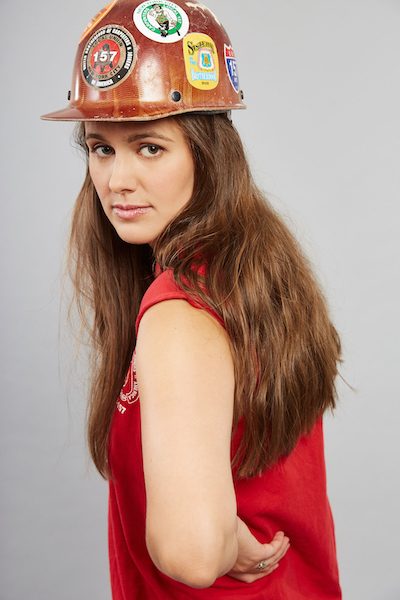
Laura Gabby graduated college in the midst of the financial crisis and, after many jobs, figured out that a desk gig wasn’t for her. She had been engaged in community organizing for some time and carpentering piqued her interest. She became a carpenter, joining Local 157, the largest Carpenters local in the country, and started organizing for the union. But it wasn’t easy. “The first job I was ever on, I was the only woman – there were hundreds of guys. Now that doesn’t happen,” says Gabby.
Gabby says she had to fight stereotypes as a young female apprentice, but has since garnered a lot of support. “At this point, I’ve proven that I’m a good carpenter and that I’m going to stick it out and have years of working alongside people. It’s become easier over time to organize with both men and women.” Although no longer in the position, she was the first woman to be elected to the executive board at Local 157.
Gabby has worked tirelessly to defend the rights and safety of carpenters, as highlighted by a piece of safety legislation she was key in fighting for. “Every time there was a death at a construction site, we would go and hold a vigil outside, and we would flyer and educate the public about it,” says Gabby. With community support, they ended up having thousands of people rallying in City Hall for new safety requirements and classes that were ultimately passed.
Gabby hopes to continue strengthening building trades unions and increasing diversity. “I think we need to bring that back – the kind of fighting spirit that started the union – and I want to see many more members involved in the fight,” says Gabby.
Gabriel Gallucci
Director of Governmental Affairs, CSA
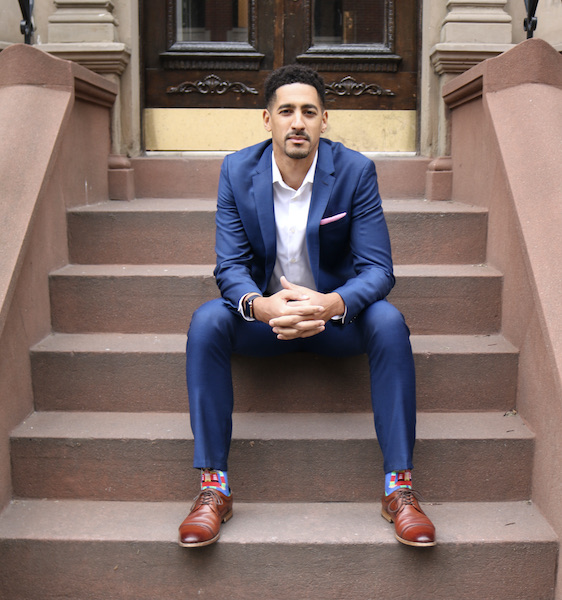
Gabriel Gallucci never thought he’d end up in politics. But after working on President Barack Obama’s 2012 reelection campaign, he was catapulted into the world of organizing.
“I just finished my master’s and then went down to North Carolina, fell in love with organizing, fell in love with going out into the community and connecting with people and building this coalition of good energy,” he recalls.
Gallucci briefly served as the political and legislative director at New York Communities for Change before joining the Council of School Supervisors and Administrators, steadily climbing the ranks to become the director of governmental affairs. While his work there has always centered around building inclusionary educational systems, Gallucci has focused over the past year on illuminating the devastating and unequal effects of the COVID-19 pandemic, and on supporting students and educators.
For Gallucci, the pandemic has highlighted the need for organized labor, which he refers to as “the backbone of the country.”
“I think that education is the equalizer for our society,” he explains. “I think it’s an equalizer for our communities. And I think that as long as we’re educating our students in an equal way, we’re all going to prosper as a country. So the fact that I’m on the front lines of bringing that together and shining a light on these issues for our educators and students keeps me hungry. I feel blessed to be in this position, and I don’t take it for granted.”
Carina Kaufman-Gutierrez
Deputy Director, Street Vendor Project
Carina Kaufman-Gutierrez has been working in the food industry since she was 15 years old. “I experienced on my own figuring out how to fight for my own wages and have grown through that process into organizing locally in my neighborhoods,” she says, by “starting to understand the dynamics of how neighborhoods are under threat, especially immigrant neighborhoods where our street vendors and smallest businesses are the vitality of our streets, sidewalks and communities.”
The pandemic has wreaked havoc on street vendors, but with the help of the Street Vendor Project and state Sen. Jessica Ramos, vendors have been able to receive food and housing aid – an effort that took months of phone calls and organizing for relief.
Most recently, Kaufman-Gutierrez relished another win she was involved in – the passage of legislation to raise the cap on the number of permits available to street vendors. “This was a historic moment for street vendors, really showing that the city is recognizing how essential their labor is and how essential their role is to the entire city,” she says.
Kaufman-Gutierrez wants to create a safe community for street vendors whom she and many others see as anchors of their respective communities. “They’re the soul of New York City,” she says. “I think day to day, street vendors are creating community block to block. They’re creating safety. They’re the eyes on the street. They’re always looking out. If you want to know what’s going on in the neighborhood, talk to a street vendor, because they know.”
Leilani Irvin
Manhattan Borough Director, New York City Department of Social Services
For Leilani Irvin, making sure homeless people get shelter is paramount. “I work with everyone in the borough to try to get our most vulnerable New Yorkers support,” Irvin says. “We want to make sure that folks can seamlessly integrate into a community where they feel welcome.”
Much of that effort centers on engaging with community stakeholders, talking to them about how to be a supportive neighbor of homeless individuals in the neighborhood. Through these conversations, she tries to counteract the stigmatization of homeless people. Oftentimes, it’s an emotional and difficult process that is vital to both shelter and community success.
Irvin is a member of SSEU Local 371, where she's part of the NextWave Committee engaging the next generation of workers. She previously was with Local 372 during her time with the education department, where she fought successfully for better and more equitable wages for her colleague. She also has helped doubled the number of enrollments in an East Harlem community school district by effectively spreading the word that there was an early childhood program for underserved, financially struggling families. As co-chair of DC 37's Women's Committee, she seeks to make organized labor more sensitive to issues of working women and their families.
Irvin says her activism dates back to organizing her kindergarten classmates. “My father always tells me, ‘It’s not how you start the race, it’s how you finish,’” Irvin says. “I just want to make sure I’m on a path where I have a strong finish.”
Bradley Kolb
Field Representative, New York State PEF
[[{"fid":"14188","view_mode":"default","fields":{"format":"default"},"link_text":null,"type":"media","field_deltas":{"22":{"format":"default"}},"attributes":{"height":600,"width":450,"class":"media-element file-default","data-delta":"22"}}]]
Bradley Kolb can trace his passion for representing working families back to his own family – “a proud union home.”
“He took me everywhere with him,” he says of his father, a New York City gravedigger, shop steward and member of SEIU Local 365. “There was never a time he didn’t include me in something – the family was heavily involved.”
When his father became a business agent for SEIU Local 74, Kolb interned for the union one summer as an organizer. “It was an obvious fit,” says Kolb. “Something stuck.” He stayed with the union throughout college and went on to receive a master’s degree in labor studies before taking a job at the Public Employees Federation.
Kolb currently represents members from 12 different state agencies, including psychiatric hospitals, where he processes grievances, participates in labor management with each division and more.
“Every single day, I wake up and there’s something new,” he says. “I’ve dealt with hundreds of thousands of members throughout the years, and I feel lucky that I get to hear the stories of so many civil servants.”
Kolb says the biggest job-related challenge during the pandemic has been virtual communication. “The contract has a whole different meaning now and it takes away that human connection between you and the member.” Despite the difficulties, he says he is “especially proud of the work the union has done to distribute PPE and to represent the state workforce in this hard time.”
Rebecca Lamorte
Legislative and Communications Coordinator, Greater New York LECET
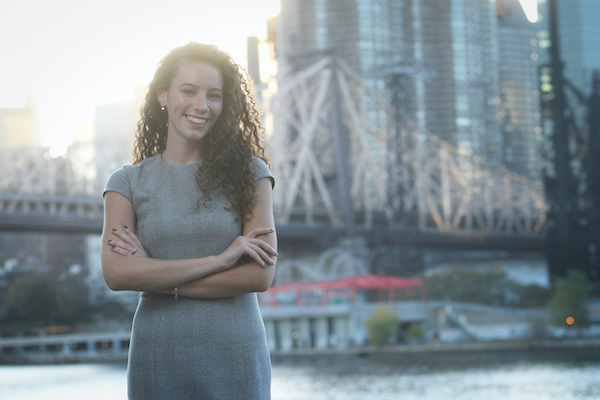
After getting acquainted with the local progressive political scene at Fordham University, Rebecca Lamorte interned for Beaudoin and Company, a lobbying firm that represents the Building and Construction Trades Council of Greater New York and Teamsters Joint Council 16. It was there that she forged the beginnings of a career dedicated to serving everyday working people.
“I fell in love with the work – being able to help others and take on issues that affect people in the day to day. It allowed me to learn so much and really service the passion inside me,” says Lamorte. “I’m someone who’s driven to change people’s lives.”
Lamorte’s own life changed after a subway accident left her partially disabled seven years ago. This has led her to further advocate for disabled New Yorkers in her recent campaign for a seat on the New York City Council. She’s served on Manhattan Community Board 8 since 2017, as well as on the Hotel Trades Council. She has campaigned against Airbnb practices and has championed fair wages in the Fight for $15 campaign.
She says it’s always been about her direct ability to help people, no matter the circumstances. “I can’t go out and give someone a job, but I can help make sure that they’re going to make a wage that ensures they can work what they’ll be worth – they’ll be given health care benefits, retirement security that so many New Yorkers don’t have,” she says. “It’s the power of people working together and wanting to see the best around them.”
Amy Lebowitz
Account Supervisor, BerlinRosen
As a geography major with minors in gender and environmental studies, Amy Lebowitz didn’t always know she’d wind up working in the labor industry – but, she says, in a very abstract sense she understands how it happened.
“My education was really about critically approaching systems and institutions and thinking through how to improve them, which essentially prepared me mentally for what I do now.”
Prior to joining BerlinRosen, she led media relations for reproductive justice and health advocacy organizations.
Working to raise awareness that, as she puts it, “unions are the general solution for many different kinds of ills,” she has worked on the Fight for $15 campaign and helped to challenge sexual harassment within the service industry as part of the #MeToo movement, making countless phone calls to reporters, workers and union leaders to ensure that those involved feel secure and supported in the movements they’re leading.
“I think that the last four years under (then-President Donald) Trump and the last year during COVID has made injustices and the two separate realities that exist in this country incredibly and unavoidably obvious,” she says.
Going forward, Lebowitz’s main priority is to elevate the voices of people who’ve been most impacted by the pandemic. “They’re ultimately the ones we need to be listening to – they’ve always had the clearest vision for what needs to change.”
Ross Lieblich
Labor Relations Specialist, NYSUT
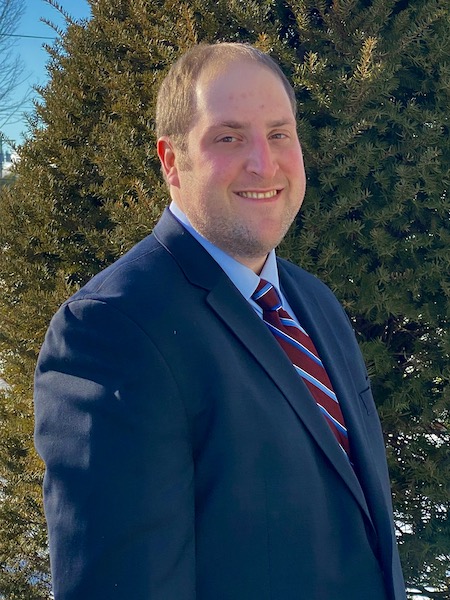
Ross Lieblich knew what he wanted to do with his life as far back as his high school days. The path was clear: As an athlete, he saw himself working to represent other athletes in sports law.
While attending law school, though, he found he was most engaged in the public-sector labor sphere, taking labor law classes and working as a law clerk for New York State United Teachers. “I really enjoyed the work they were doing – I always wanted to work there – it was just going to be a matter of when the stars aligned.”
Following law school, Lieblich worked at a law firm in Rochester for two years. After working at another firm for about six months, he got a call from NYSUT that a position had opened up – and the rest is history.
As a labor relations specialist, Lieblich manages 16 individual local associations within the union, which represents around 600,000 school district employees. He handles contract negotiations and assists with legal claims, medical concerns, and issues concerning family, personal health and well-being.
He says it’s NYSUT’s clients who have kept him going these past nine years.
“I truly get to interact and problem-solve with so many hardworking people,” he says. “What really drives me, that I’ve learned from a really young age, is that no matter anyone’s job or experience or education level, you treat everyone with respect and you go out of your way to help them.”
Ryan McGarry
Director of Government and Community Relations, Suffolk County AME
It was 2000 – the dawn of the cellular phone era – when Ryan McGarry saw the Communications Workers of America striking against Verizon. A few years later, McGarry became a union member himself, working at TWU Local 100, New York’s public transit union. “As the son of Irish immigrants, it felt personal – and like the perfect fit,” he says.
It was at TWU where McGarry endured a self-described “trial by fire” when the union shut down the city in the 2005 transit strike. He earned a master’s degree and spent several years working in the Suffolk County executive’s office before getting a call from AME inviting him to join their team.
McGarry was brought on to help the union with community outreach and government organizations. “My day to day is making sure we’re influencing the hearts and minds of the general public,” he says. “The more we can get them to understand the importance of our work, the more we can represent their best interests when it comes to the negotiating table.” For McGarry, this includes tracking bills at all levels of government to make sure nothing adversely affects the union.
Today, he’s most proud of the union’s weekly radio show, “Suffolk Matters,” and the Mayday Music Festival, an annual May Day event dedicated to celebrating unionism. “I look forward to the day we can all gather together again and show people – union workers are your friends and neighbors and we’re proud of the work we do,” he says.
Miranda Nelson
New York/New Jersey Director, Jobs to Move America
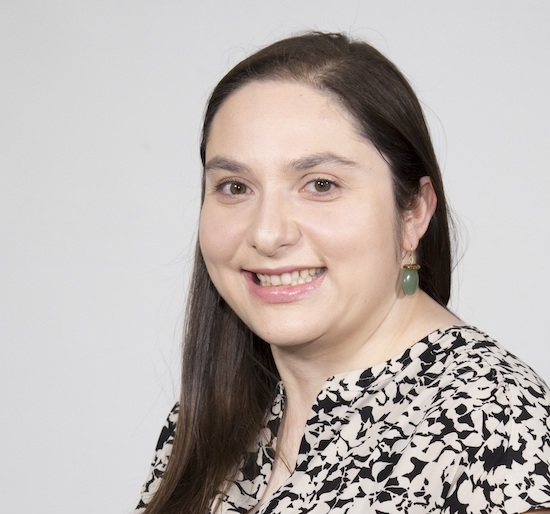
“It’s in the family,” says Miranda Nelson of her union upbringing. As the daughter of union members and the great-granddaughter of a union organizer, Nelson is no stranger to labor activism – she cut her teeth working as a researcher and campaigner with the New York State Nurses Association and the Food and Commercial Workers union.
Nelson is currently collaborating with other unions and environmental groups at the New York/New Jersey chapter of Jobs to Move America to advocate for green infrastructure and sustainable jobs.
The issue most on her mind currently is how to make the Metropolitan Transportation Authority a more equitable and safe institution for its workers. “(They) adopted our policy ideas for the big purchase of rail cars, which was quite delayed. We’d really like to see this put into place but the MTA’s put it on hold because they’re facing a fiscal crisis,” she explains.
She says issues like this have vividly underscored the infrastructure problems that exist nationwide. “COVID has made clear that we are in a crisis and points to our large crises of climate change and inequality,” says Nelson. “There’s not a lot of alternatives besides fighting to make things better and to try to reverse some of these crises. I just had a daughter and thought a lot about if I wanted to bring a kid into this world – if you’re going to, you have to fight to make it a better one.”
Leah Okin
Business Representative, TWU Local 764 IATSE
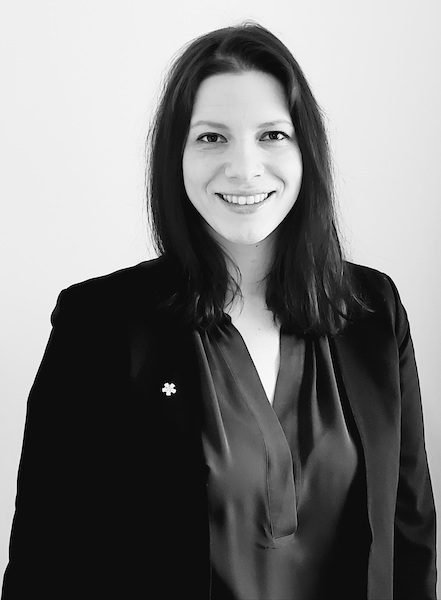
As the daughter of a costume designer, Leah Okin says both theater and unions are “in (her) blood.” After hearing critics dismiss her profession by claiming jobs in the wardrobe and costume department are “not real jobs, but just clothes,” Okin has worked to dismantle such misconceptions and has dedicated herself to supporting the industry’s garment workers.
“I spent a lot of my time in the wardrobe rooms in the theaters. I worked at a prop shop in Portland for a while. When I really got into the union part of it, I saw that it wasn’t because of the industry that my mom had a good job; it was because of the union and what they had fought for. I was really inspired by that,” says Okin.
As a 15-year member of IATSE, Okin has worked her way through myriad positions. Under typical circumstances, she handles live performances, working to represent wardrobe workers through collective bargaining agreements and negotiating and administering contracts.
Since Broadway went dark in March 2020, Okin has worked to ensure members have access to unemployment and mental health resources. She’s very proud of the work the union’s members have accomplished during the pandemic.
“They churned out personal protective equipment for hospitals and thousands of masks for a group of domestic abuse survivors. When the election came, we had people who were virtual phone bankers. At every turn, when something has been asked of our members, they’ve stepped up to the plate – they’re all-in for this city,” she says.
Jeffrey Omura
Chair, International Actors Committee, Actors’ Equity Association
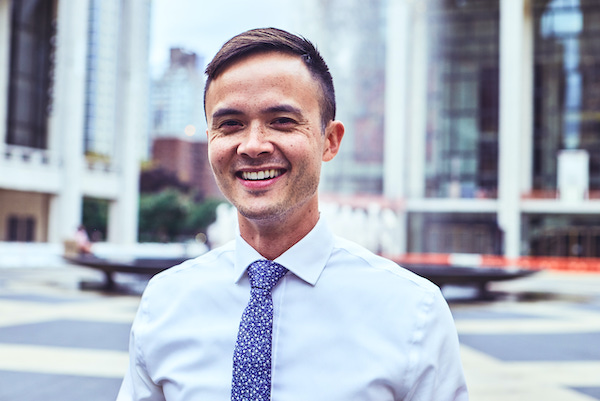
It’s difficult to imagine exactly where Jeffrey Omura could be on any given day. The actor-turned-labor activist-turned-congressional lobbyist – and now New York City Council candidate – has worn many hats since his days studying acting at Carnegie Mellon.
“The mark of my professional career as an actor was getting my membership cards to three actor unions,” he recalls fondly. However, even with union memberships, Omura was making less than $600 a week at a well-known off-Broadway theater. “I knew something had to change,” he remembers.
In 2016 he helped create Fair Wage Onstage, a grassroots movement for Actors’ Equity that gained national attention when it secured, via a single contract negotiation, an 83% wage increase for actors. Omura is also part of the new Be an Arts Hero campaign, which focuses on lobbying Congress to provide relief for the arts.
After years of lobbying New York City Council for funding on behalf of New York City theaters, Omura is running for a council seat with the message that post-pandemic life can be “a renaissance for all.”
“Artists are lucky that they get to do what they love and I want to make sure I can afford to continue doing that – and that other people can as well,” he says. “We want all the same things that other workers want – to pay bills and rent and be able to have a family. It’s something that can really feel out of reach at times for artists – but it shouldn’t.”
Daniel Pollak
Associate Commissioner, New York City Office of Labor Relations
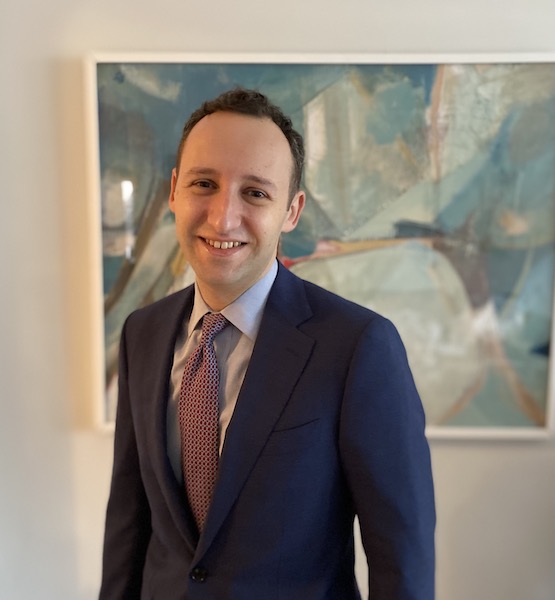
“Every day really is something different,” says Daniel Pollak of his job with the New York City Office of Labor Relations. From contract negotiations and bargaining sessions with unions to addressing employee disciplinary issues, Pollak runs a tight ship working with city agencies and union representatives at OLR.
After interning at 1199SEIU piqued an interest in union organizing, Pollak became increasingly curious about labor law while getting his law degree at George Washington University. He moved back to New York and took a fellowship with the city Law Department in the appeals division before starting at OLR, where he originally represented the city in grievance arbitration and improper labor practice cases with the office’s legal division.
Pollak is currently seeking creative ways to manage severe economic outcomes of COVID-19, working to negotiate savings with unions and address budget shortfalls. “Even more so in a time like this, I really like that on a large- and small-scale basis, my job is about helping hardworking people who keep this city running,” he says.
Though the office’s dealings are focused on the managerial side of labor relations, Pollak says it’s been incredibly rewarding to help address the concerns of everyday working-class people. “Agencies are really responsible for things like plowing the snow, picking up the garbage, law enforcement, and medical workers – we’re helping these agencies run and I really like being able to do that. I like helping them achieve their mission.”
Connor Shaw
Assistant Political Director and Business Agent, IUJAT
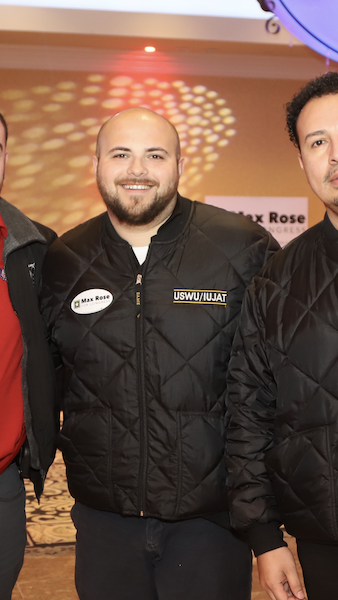
“Unions have always been important to me,” says Connor Shaw, proclaiming it was not a shock, as the son of a union man, that he wound up representing 25,000 health care workers during a global pandemic in a successful bid to secure personal protective equipment for home and hospital workers. He also serves as a labor representative at Local 255 USWU-IUJAT, based in New Jersey, where he’s involved in day-to-day representation.
Before taking on a union job, Shaw made his bones in the political realm, working on campaigns like Hillary Clinton’s 2016 presidential run, and performed communications and consulting work for nonprofit and for-profit organizations.
The International Union of Journeymen and Allied Trades was “instrumental in making sure health care workers who were going in and out of people’s homes were 1A for the vaccine,” says Shaw, describing the many difficulties home health care workers face when frequenting several homes per day. He has since helped set up a phone line for union members to call if they have any PPE-related questions or requests.
“It’s definitely making sure working folks are represented,” he says about maintaining motivation through difficult times. “Even when I was involved in politics, this was big for me. I could see that people like my dad – his interests weren’t being reflected. This is why I’m so happy to be involved in the labor movement for the past five years and going forward.”
Nagma Singh
Legislative Assistant, New York State AFL-CIO
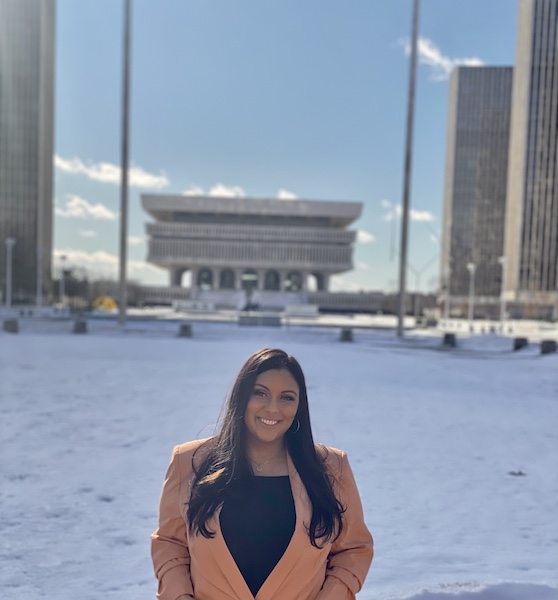
Nagma Singh started at the New York State AFL-CIO as a receptionist, but hard work and passion quickly propelled her to the position of legislative assistant. Her day now consists of meeting with state senators and organizers she once greeted at the door.
“I think they realized there was more potential to me,” she says. “They taught me so much.”
Singh, however, was introduced to labor much earlier. Her mother, an immigrant from India, was a member and delegate for 1199SEIU.
“Unions gave people like my mother a voice,” she says. “When she moved to New York City, the bachelor’s degree she received in India didn’t matter here. Being part of a union gave her the opportunities and benefits she might have never had, which led to me and my brother to have a better quality of life. She was able to afford child care, she was able to afford a nice home, and she was able to put food on the table.”
Singh has dreamed of becoming a lobbyist ever since she was introduced to the concept in high school. This aspiration took her to the University at Albany, where she studied political science and history. She has also built off of her experience interning at Rep. Paul Tonko’s office.
“It’s something that sounds cliche, but I’ve always wanted to be part of something that had a positive impact on people’s lives,” she says.
Bhav Tibrewal
Political Director, New York Hotel and Motel Trades Council
Bhav Tibrewal has spent so much of his professional life with the Hotel Trades Council that he simply calls it his home.
“I’m really proud of all the work I’ve done during that whole time,” he says. “I’m committed to continuing to do it at a time like right now. It’s a hard time for workers across the city, but it’s a particularly hard time for our members. Our industry has been hit perhaps worse than any other industry.”
For Tibrewal, the next few months are crucial to rebuilding a more equitable hotel industry.
“A big part of what’s going to define what the recovery period looks like, in general – but for our members, in particular – is going to be the outcome of this year’s elections,” he says. “What that means is finding very specific ways to ensure that workers are safe when hotels and the tourism industry start to come back.”
The son of Indian immigrants, Tibrewal has always been passionate about workers’ rights. He notes that his politics have always been “left of center,” and that his own experiences directed him towards labor.
“I think part of the thing that’s informed that is being an immigrant and being of immigrant parents whose experience in the United States was often fraught with being othered or facing racism,” he says. “And I think seeing my parents navigate that world, as their child, helped inform my political views about the country and about justice – and about what I wanted to do.”
Candis Tolliver
Vice President and Political Director, 32BJ SEIU
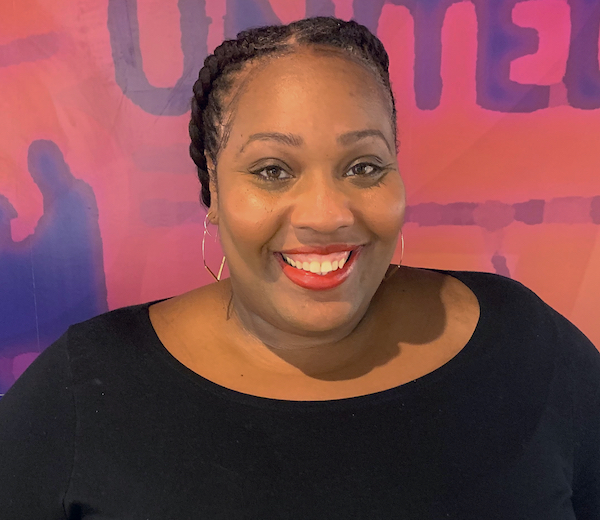
Candis Tolliver first learned about 32BJ SEIU – the largest union of property service workers in the country – via her work on police reform at the New York Civil Liberties Union.
Tolliver carefully observed how union involvement energized police reform efforts across New York City, especially when it came to stop and frisk and the Community Safety Act.
“It wasn’t until the unions jumped in and played a major role that we really saw success in that campaign,” she says. “It introduced me to unions in a whole new way. I wanted to learn how you can use organized labor to advance social justice.”
Since that realization almost six years ago, Tolliver has left the NYCLU and risen from 32BJ’s deputy political director to its vice president. She spends her days negotiating legislation with policymakers, devising member engagement strategies, managing a team of 26 people, and ensuring that essential workers are prioritized.
Throughout more than a decade of experience in organizing, Tolliver has seen the labor movement transform.
“When people think about labor, they think of white men doing construction work,” she says. “And I think our union highlights and shows that that is not the whole workforce, right? There are folks that look just like me, Black and brown and women, coming from all kinds of communities, banding together to have a collective voice to improve their work standards.”
Ryan Trevas
Business Services Representative, New York State Department of Labor
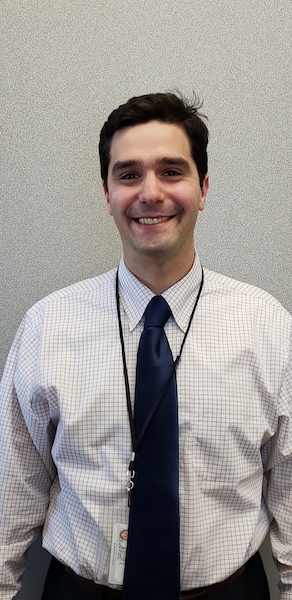
As a child growing up in Irondequoit, Ryan Trevas was exposed to the ideal of serving the community – his father, who worked for Xerox, was committed to helping others and his mother was a teacher assistant, instilling in him an inclination for public service.
“My dad’s volunteer work, as well as my mom being an educator, ultimately led me to create a passion for public service,” Trevas says. “That’s why I’m in the position I’m in now.”
He initially followed directly in his mother’s footsteps as a teacher assistant for two years, then took a health care education position with Monroe County for a year. In 2015, he was hired on at the state Department of Labor, where he’s now a business services representative at a time when employers have been hammered by COVID-19 and government-imposed shutdowns due to the pandemic. In response to the coronavirus, his workload has shifted since last March to include helping provide assistance to the unemployed as many New Yorkers lost their jobs.
At the state Department of Labor, Trevas also assists businesses with hiring and recruiting, including planning virtual job recruitment fairs. He also helps the state government collaborate with Monroe County and its business community by providing guidance related to workforce and regulations put into place by the Cuomo administration and serves as a departmental point of contact in the Finger Lakes region.
“That’s what I’m really about, you know, helping my fellow New Yorker get off their feet and … get a job,” Trevas says.
Erica Vargas
Assistant Director for Political Action and Legislation, DC 37

While studying for her undergraduate degree, Erica Vargas considered many different career paths – from computer programming to medicine and even forensics. But while working as an assistant at Lehman College, she was introduced to the world of organized labor.
“I didn’t know I was in a union, which is crazy,” she said. “I was like, ‘Hey, like, I get these dues taken out of my check. Like, what is this? You know, we didn’t make a lot of money. Why are they taking this money?’”
Now, almost two decades later, Vargas is the assistant director for political action and legislation at DC 37 – New York City’s largest public employee union – which is the same union that represented her as a young assistant. Vargas has spent the past 20 years advocating for 911 operators, librarians, health care administrators, laborers, educators, school crossing guards, child care workers, and many more municipal employees. Vargas refers to the members she represents as a “second family” and a source of “constant joy.”
“It makes me proud to have this connection with the membership,” she says.
While working to improve the lives of workers and their communities across the city, Vargas has seen a significant shift in the way labor is perceived.
“Things have changed so much,” she says. “I’ve talked to a lot of candidates – there’s a lot of folks who are running – and a lot of young folks are running as well. The fact that they’re seeking to get endorsements from the union means a lot.”
Patrick Weisansal II
Vice President, CWA Local 1168
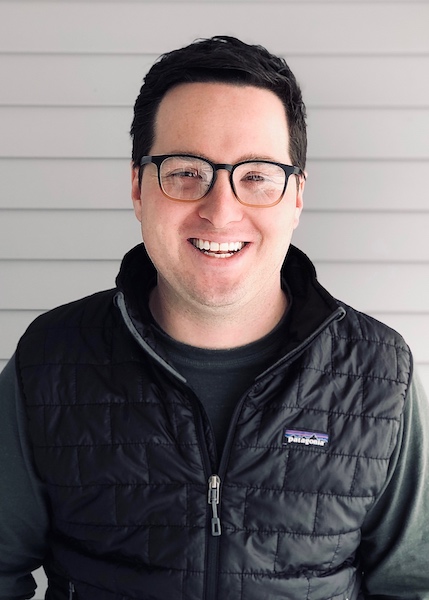
Patrick Weisansal fell into the world of labor while working as a radiologic technologist at Kaleida Health. But he credits his time at Trocaire College as the pivotal moment that decided his career path.
“My college years and my degree helped me become someone who wanted to be an activist and stand up for others,” he says.
The Buffalo native not only tends to patients but also advocates for health care professionals through his work with Communications Workers of America Local 1168, which represents 4,600 health care workers across Western New York. After seven years as the local’s director of organizing and mobilizing, Weisansal was elected vice president in November following a successful campaign that highlighted transparency and member involvement.
“Union leaders are told that they are the ones to make every single decision and that’s why their members put them there,” Weisansal says, adding that this may not be the best approach because one person cannot be an expert in everything.
“But, really, we should be organizers and we should be going out and encouraging members to get involved,” he says. “We have to work as a team.”
Weisansal says he is most eager to tackle understaffing and mental health coverage.
“We have to tell the real stories of what’s going on at the bedside,” he says. “The first step is getting more people involved. And then once you do that, we have to expose what’s really going on and call out our employers.”
Andrew Wieber
Project Manager, Champion Painting Specialty Services
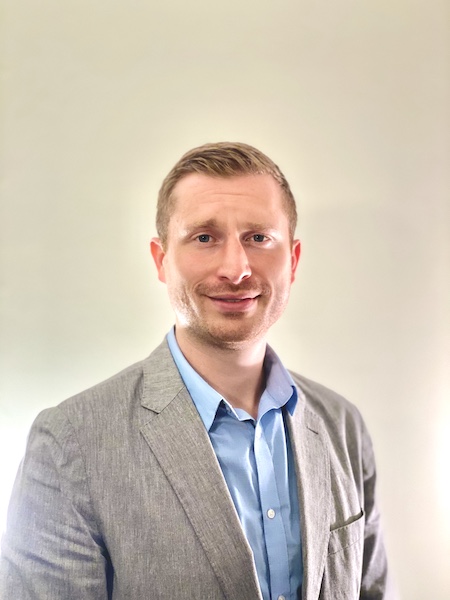
Andrew Wieber recently started a new position as project manager at Champion Painting, but he’s been in the business for more than 16 years. He has spent the majority of his career at Ahern Painting Contractors, which he joined in 2005 while still a construction management and engineering technology student at Farmingdale State College. He quickly rose from a field engineer to project manager, overseeing numerous multimillion-dollar projects and managing federal, state and city public works projects.
“We’ve done everything from transit projects to building new public schools, a lot of bridge preservation, renovations and repairs,” he says. “It’s been cool to just be a part of so many really iconic structures that are all over the city.”
The Queens native had always enjoyed working with his hands, but it wasn’t until his senior year of high school, when he interned at a Manhattan architecture firm, that he realized he wanted to get into construction.
“It really shaped me from early on in my working career,” he says. “I gained a lot of respect for the different trades, especially being on the bridges between the ironworkers and the bridge painters, and just seeing the literal heights that they go to.”
Another pivotal moment in Wieber’s relationship with labor was a two-year missionary trip to Guatemala, where he worked on medical outreach and clean water, building and solar projects.
“Seeing people hike an hour or two in the morning down a mountain to go work, whether it’s on a farm or at a construction site for $3 to $4 a day – and then hike all the way back home – gives you an appreciation for the length people are willing to go just to work,” he says.
Megan Wylie
Political Action Coordinator, New York City DCC
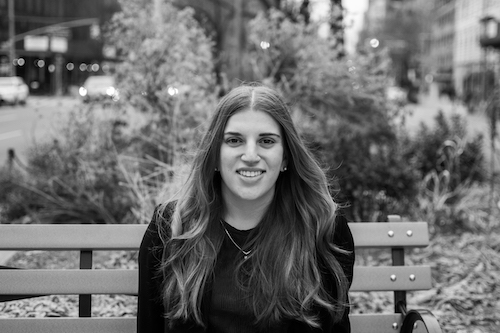
Megan Wylie always knew she wanted to go into politics, but it took a year in Washington, D.C., to realize that New York politics was where her heart lay.
“I missed the dynamic of New York politics,” she says now. “I think it’s so much nicer to be able to focus on issues of labor and issues actually affecting citizens versus issues that are affecting corporations.”
Wylie, the political action coordinator at the New York City and Vicinity District Council of Carpenters, has been steadily rising in the world of New York politics since interning for now-mayoral hopeful Scott Stringer’s 2017 city comptroller reelection campaign. After working for multiple New York City Council campaigns and a top New York lobbying firm, Wylie was ready for a new challenge.
In her role with the NYCDCC, she has helped efforts to increase the state’s prevailing wage and pushed for a bill that would hold general contractors accountable for wage fraud offenses committed by subcontractors.
“It’s really horrible that in a city that’s as progressive as New York, we still face these offenses daily,” she says.
Wylie’s biggest priority is to act as a link between the union and city and state officials.
“I could talk for hours about the need to ensure protection against wage fraud, but it really means nothing for me unless I serve as an intermediary and help explain and introduce our members to elected officials so they can actually describe their stories and how they’ve been affected personally,” she says.
Corrections: This story has been updated with correct information about Jennie Encalada-Malinowski's hometown and the correct name of her parents' union. It has also been updated to accurately reflect the work done by members of Leah Okin's union and the length of her tenure. It has also been updated with the correct number of members of New Immigrant Community Empowerment.
NEXT STORY: The 2021 Nonprofit Power 100: 51-100



